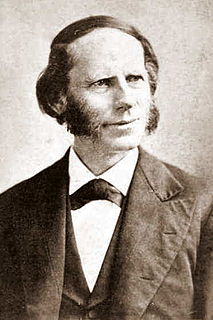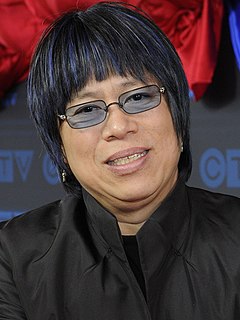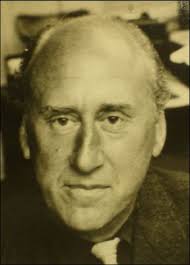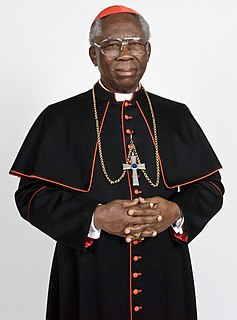A Quote by Annie Besant
Theosophy tries to bridge the gulf between Buddhism and Christianity by pointing to the fundamental spiritual truths on which both religions are built, and by winning people to regard the Buddha and the Christ as fellow-laborers, and not as rivals.
Related Quotes
The distance between capital and labor is not a great gulf over which is swung a Niagara suspension bridge; it is only a step, and the laborers here will cross over and become capitalists and the capitalists will cross over and become laborers. Would to God they would shake hands while they are crossing, these from one side, and those from the other side.
[Buddhism and Christianity] are in one sense parallel and equal; as a mound and a hollow, as a valley and a hill. There is a sense in which that sublime despair is the only alternative to that divine audacity. It is even true that the truly spiritual and intellectual man sees it as sort of dilemma; a very hard and terrible choice. There is little else on earth that can compare with these for completeness. And he who does not climb the mountain of Christ does indeed fall into the abyss of Buddha.
Christ remains the most influential figure in history. Any list of world-transforming individuals would no doubt include Moses, Buddha, and Muhammad. Moses, Buddha, and Muhammad, however occupy totally different places in Judaism, Buddhism, and Islam than Christ occupies in Christianity. Moses, Buddha, and Muhammad never professed to perform miracles; indeed they never claimed to be anything more than men. They viewed themselves simply as God's messengers. Christ is the only person in history who has defined a whole religion around his person.
Once again, we are reminded that awakening, or enlightenment is not the property of Buddhism, any more than Truth is the property of Christianity. Neither the Buddha nor the Christ belongs exclusively to the communities that were founded in their names. They belong to all people of goodwill, all who are attentive to the secret which lives in the depths of their breath and their consciousness.
The Christian faith, simply stated, reminds us that our fundamental problem is not moral; rather, our fundamental problem is spiritual. It is not just that we are immoral, but that a moral life alone cannot bridge what separates us from God. Herein lies the cardinal difference between the moralizing religions and Jesus' offer to us. Jesus does not offer to make bad people good but to make dead people alive.
Bolshevism is to be reckoned with Mohammedanism rather than with Christianity and Buddhism. Christianity and Buddhism are primarily personal religions, with mystical doctrines and a love of contemplation. Mohammedanism and Bolshevism are practical, social, unspiritual, concerned to win the empire of the world.
Beyond these models of reconciliation, a theology of mysticism provides some hope for common ground between Christianity and Islam. Both religions have within their histories examples of ecstatic union with God, which seem at odds with their own spiritual traditions but have much in common with each other.
When I said that I am the Buddha, the Christ, the Lord Maitreya, and more, it was not a question of superiority or inferiority. I added that phrase 'and more' very carefully, because I knew that people had a very limited understanding of the Buddha and the Christ, and hence if I said: 'I am the Christ, the Buddha', they would limit that Reality to their own conceptions of the Buddha or the Christ, and Life has no limit.








































